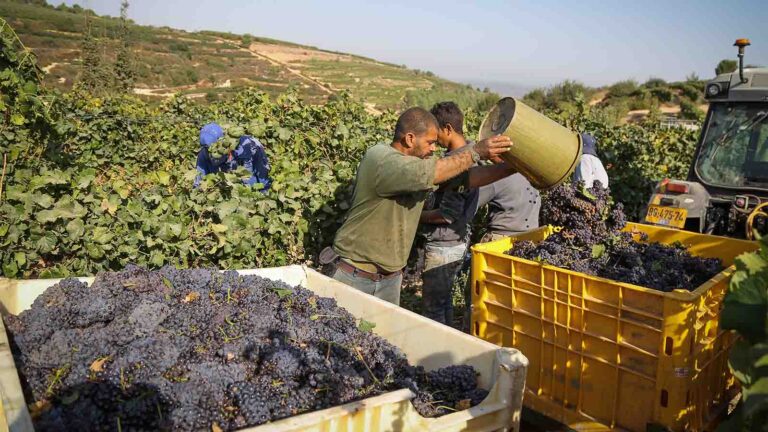
The Arrangements Law – the legislation passed two weeks ago that runs in tandem the with state budget – contains a clause that would bankrupt Israeli farmers and increase Israel’s dependency on other countries for food imports, all in the name of lower prices in the supermarket. So claims the Israeli Forum for Sustainable Nutrition in their recent letter to the Ministry of Finance opposing the lowering of tariffs for international produce imports.
“[The reform] could lead to higher priced products on the one hand, and endanger us all in times of crisis on the other," they wrote. The move aims to drive down prices for average consumers due to higher competition, but essentially removes all protections for local farmers, which could lead to their produce being outcompeted and outpriced by foreign agriculture.
The Forum, an independent body of leading researchers in their field, formulates policies and advises government officials in Israel and abroad on food security and sustainability issues.
“The import of agricultural products is not a silver bullet to lowering prices in the long run, especially in a small isolated country like Israel, which is essentially dependent on shipping and is not a large or attractive consumer market that manufacturers would necessarily want to visit,” they claim.
“Beyond this, since a large portion of the price on the part of the consumer is due to retail costs, there is a considerable risk that retailers will be the ones to pocket the change from reduced import taxes, as has happened in the past,” they added.
The Forum warned that in light of the climate crisis and its impact on global food growth, the reform could likely cause a shortage in fresh and healthy food. They stated in their position paper to the Ministry of Finance that “if the lack of fresh food will be largely dependent on import, there is a real threat of significant damage to Israel’s food security.”
They also emphasized that the increase in extreme events such as abnormal temperatures, flooding and unprecedented droughts will begin to more seriously affect Israel and its agricultural output. Many parts of the world have already begun to feel the effects on their agricultural crops in recent years.
"Israeli agriculture grows most of the fresh food needed"
The Forum asserts that aside from harming Israel’s food security, the measure may not even be strictly necessary outside of the aim of lowering costs. “Israeli agriculture currently grows most of the fresh food needed by the population," they wrote.
The experts criticized the fact that the reform was unilaterally formulated by the Ministry of Finance, without participation of officials in the Ministry of Agriculture, or the farmers themselves. They noted that the direct support mechanism offered to the farmers as part of the reform in the form of 100 shekel per dunam of agricultural land, is insufficient. According to them, this aid is “superficial,” making up a fraction of the financial support most farmers in European Union countries receive.
"The adoption of one aspect as part of a range of European support systems [for farmers], whose adaptation to the reality of agriculture in Israel and the local needs here has not been examined in depth – including examining the long-term ramifications of the policy move – is insufficient as direct competitive support and may lead to deterioration of agriculture and farmers in Israel," the letter read.
They also noted that EU countries have mechanisms for supporting young workers and rural development, as well as subsidizing water prices, foreign workers and more.

The reform increases the risk of the arrival of invasive species
Beyond the possible shortage of healthy, cheap, and fresh food, the forum warned that the reform, which also includes loosening protections on local plant species in order to facilitate the import of fruits and vegetables, could increase the chances of invasive species entering Israel. Such a development could lead to severe damage to existing agriculture, and lead to high financial costs in order to address the damage.
"It is important to note, that when pests and invasive species are involved, it is not comparable to regular commercial products, and in the case of infestation, 'recall' is not possible as it spreads quickly, independently, is difficult to control and in most cases irreversible," they explained.
The researchers cited the palm weevil, a species of beetle which invaded Israel a decade ago and severely damaged the local palm industry. The ongoing cost of pesticides to deal with this pest continues to be very high.
“Stop the reform and formulate an orderly plan"

The forum criticized the Ministry of Finance for choosing to focus only on farmers in the effort to lower the cost of living, explaining that the government has many tools at its disposal before the drastic measure of opening the market to imports.
"For example, it is relatively easy to implement a price control mechanism, as was previously recommended by the joint Prices Committee for the Ministries of Finance and Agriculture,” they wrote.
"We call for an immediate halt to agricultural reform as part of the Arrangements Law, including moves that bypass the organizations for protection of local species,” they concluded. “[We demand] an orderly plan that will promote broad agricultural reform to support Israel's food security and economic access to a basic, sustainable, and healthy food basket.”






